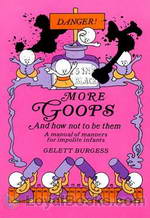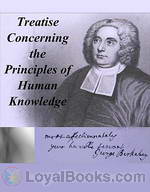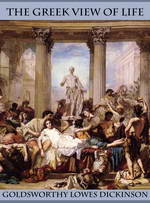|
Books Should Be Free Loyal Books Free Public Domain Audiobooks & eBook Downloads |
|
|
Books Should Be Free Loyal Books Free Public Domain Audiobooks & eBook Downloads |
|
Philosophy Books |
|---|
|
Book type:
Sort by:
View by:
|
By: Friedrich Wilhelm Nietzsche (1844-1900) | |
|---|---|
 Thoughts out of Season Part I
Thoughts out of Season Part I
| |
By: Fyodor Dostoyevsky (1821-1881) | |
|---|---|
 The Brothers Karamazov
The Brothers Karamazov
Set in 19th century Russia, The Brothers Karamazov (Russian: Братья Карамазовы) is the last novel written by the illustrious author Fyodor Dostoyevsky who died a few months before the book's publication. The deeply philosophical and passionate novel tells the story of Fyodor Karamazov, an immoral debauch whose sole aim in life is the acquisition of wealth. Twice married, he has three sons whose welfare and upbringing, he cares nothing about. At the beginning of the story, Dimitri Karamazov, the eldest son who is now a twenty-eight year old war veteran, returns to his home town to claim the inheritance left to him by his dead mother... | |
By: G. K. Chesterton (1874-1936) | |
|---|---|
 Heretics
Heretics
The Author Gilbert Keith Chesterton was born in London, England on the 29th of May, 1874. Though he considered himself a mere “rollicking journalist,” he was actually a prolific and gifted writer in virtually every area of literature. A man of strong opinions and enormously talented at defending them, his exuberant personality nevertheless allowed him to maintain warm friendships with people–such as George Bernard Shaw and H. G. Wells–with whom he vehemently disagreed. Chesterton had no difficulty standing up for what he believed... | |
 Orthodoxy
Orthodoxy
Orthodoxy is a book that has become a classic of Christian apologetics. In the book's preface Chesterton states the purpose is to "attempt an explanation, not of whether the Christian faith can be believed, but of how he personally has come to believe it." In it, Chesterton presents an original view of the Christian religion. He sees it as the answer to natural human needs, the "answer to a riddle" in his own words, and not simply as an arbitrary truth received from somewhere outside the boundaries of human experience. | |
By: G. S. (George Sumner) Weaver (1818-1908) | |
|---|---|
 Aims and Aids for Girls and Young Women On the Various Duties of Life, Physical, Intellectual, And Moral Development
Aims and Aids for Girls and Young Women On the Various Duties of Life, Physical, Intellectual, And Moral Development
| |
By: Gelett Burgess (1866-1951) | |
|---|---|
 More Goops and How Not to Be Them
More Goops and How Not to Be Them
Deep in the heart of every parent is the wish, the desire, to have other adults tell us, in an unsolicited way, just how very polite one’s child is! This perhaps was even more the case in 1903, when Gelett Burgess produced his second book on the Goops. With entertaining cartoons – cariacatures of misbehaving children – he described many different breaches of tact and good manners. Burgess wrote several books of poetry on the Goops, each poem describing some significant way in which an unthoughtful or unkind child could offend polite society and often offering the hope that the listener would never behave that way... | |
By: George Berkeley (1685-1753) | |
|---|---|
 A Treatise Concerning the Principles of Human Knowledge
A Treatise Concerning the Principles of Human Knowledge
A Treatise Concerning the Principles of Human Knowledge, Part 1 (Commonly called “Treatise” when referring to Berkeley’s works) is a 1710 work by the Irish Empiricist philosopher George Berkeley. It largely seeks to refute the claims made by his contemporary John Locke about the nature of human perception. Both Locke and Berkeley agreed that there was an outside world, and it was this world which caused the ideas one has within one’s mind. Berkeley sought to prove that the outside world was also composed solely of ideas, suggesting that “Ideas can only resemble Ideas”... | |
 Three Dialogues Between Hylas and Philonous
Three Dialogues Between Hylas and Philonous
Berkeley uses Hylas as his primary contemporary philosophical adversary, John Locke. A Hylas is featured in Greek mythology and the name Hylas is derived from an ancient Greek word for “matter” which Hylas argues for in the dialogues. Philonous translates as “lover of mind.” In The First Dialogue, Hylas expresses his disdain for skepticism, adding that he has heard Philonous to have “maintained the most extravagant opinion… namely, that there is no such thing as material substance in the world.” Philonous argues that it is actually Hylas who is the skeptic and that he can prove it. Thus, a philosophical battle of wit begins. | |
 A Essay Towards a New Theory of Vision
A Essay Towards a New Theory of Vision
| |
By: George Herbert Palmer (1842-1933) | |
|---|---|
 The Nature of Goodness
The Nature of Goodness
| |
By: George Horace Lorimer (1869-1937) | |
|---|---|
 Letters from a Self-Made Merchant to His Son
Letters from a Self-Made Merchant to His Son
Being the Letters written by John Graham, Head of the House of Graham & Company, Pork-Packers in Chicago, familiarly known on 'Change as "Old Gorgon Graham," to his Son, Pierrepont, facetiously known to his intimates as "Piggy." George Horace Lorimer was an American journalist and author. He is best known as the editor of The Saturday Evening Post. | |
 Old Gorgon Graham More Letters from a Self-Made Merchant to His Son
Old Gorgon Graham More Letters from a Self-Made Merchant to His Son
| |
By: George J. Holyoake (1817-1905) | |
|---|---|
 English Secularism
English Secularism
What is Secularism? "Secularism espouses the cause of the world versus theology; of the secular and temporal versus the sacred and ecclesiastical. Secularism claims that religion ought never to be anything but a private affair; it denies the right of any kind of church to be associated with the public life of a nation, and proposes to supersede the official influence which religious institutions still exercise in both hemispheres." George Holyoake was an English freethinker and one of the last persons in England to be convicted and jailed for blasphemy. He coined the term "secularism" while being an editor for the secularist newspaper "The Reasoner". | |
By: George John Romanes (1848-1894) | |
|---|---|
 Mind and Motion and Monism
Mind and Motion and Monism
| |
By: George Santayana (1863-1952) | |
|---|---|
 Some Turns of Thought in Modern Philosophy
Some Turns of Thought in Modern Philosophy
Before the beginning of World War II, during the time of the Modernist movement in philosophy, George Santayana wrote these five descriptive essays. He examined John Locke’s sensationalism, British Idealism, the “Theory of Relativity”, Freud’s psychology, and Julien Benda’s preachment on the relations between God and the world. [Summary written by Gary Gilberd] | |
 The Life of Reason volume 1
The Life of Reason volume 1
The Life of Reason, subtitled "the Phases of Human Progress", is a book published in five volumes from 1905 to 1906, by Spanish-born American philosopher George Santayana (1863-1952). It consists of Reason in Common Sense, Reason in Society, Reason in Religion, Reason in Art, and Reason in Science. The work is considered to be the most complete expression of Santayana's moral philosophy [...]. Santayana's philosophy is strongly influenced by the materialism of Democritus and the refined ethics of Aristotle, with a special emphasis on the natural development of ideal ends... | |
 The Sense of Beauty Being the Outlines of Aesthetic Theory
The Sense of Beauty Being the Outlines of Aesthetic Theory
| |
 Winds of Doctrine: Studies in Contemporary Opinion
Winds of Doctrine: Studies in Contemporary Opinion
Even before the Great War turned the world upside down, Western civilization was being revolutionized at all levels: intellectually, philosophically, artistically. Noted positivist philosopher George Santayana published this volume on the eve of the War, trying to portray the status of philosophy and theology at that moment by analyzing six significant topics: 1. the intellectual "temper" of the age 2. the clash between Modernism and Christianity 3. the new idealism of Henri Bergson 4. the new skepticism of Bertrand Russell 5. Shelley's fusion of philosophy and poetry 6. the so-called "genteel" tradition in American philosophy. | |
By: George Sharswood (1810-1883) | |
|---|---|
 An Essay on Professional Ethics Second Edition
An Essay on Professional Ethics Second Edition
| |
By: George Stuart Fullerton (1859-1925) | |
|---|---|
 An Introduction to Philosophy
An Introduction to Philosophy
| |
By: Giordano Bruno (1548-1600) | |
|---|---|
 The Heroic Enthusiasts (Gli Eroici Furori) Part the Second An Ethical Poem
The Heroic Enthusiasts (Gli Eroici Furori) Part the Second An Ethical Poem
| |
 The Heroic Enthusiasts (Gli Eroici Furori) Part the First An Ethical Poem
The Heroic Enthusiasts (Gli Eroici Furori) Part the First An Ethical Poem
| |
By: Goldsworthy Lowes Dickinson (1862-1932) | |
|---|---|
 The Greek View of Life
The Greek View of Life
“With the Greek civilisation beauty perished from the world. Never again has it been possible for man to believe that harmony is in fact the truth of all existence.”This elegantly-written work provides a splendid introduction to the Greeks of the classic period: how they thought, wrote, and organised their lives and loves. Although it dates from the 1890s, there is very little about it that has dated. To its author’s credit, the subject of “Greek love” is dealt with in a sane and factual context - despite the judicial assassination of Oscar Wilde going on in the background... | |
By: H. G. Wells (1866-1946) | |
|---|---|
 Anticipations
Anticipations
Wells considered this book one of his most important, a natural follow-up to such works as his Man of the Year Million and The Time Machine. His goal was to get people to think and act in new ways. The book starts with a look at how humans get along socially and how they carry out their business ventures. It then discusses how these elements influence others, such as politics, the world of work, and education. H. G. tried to make clear how the current social order was disintegrating without preparing another to take its place. He then traced the roots of democracy, which in its present state he saw as unworkable. Instead, he proposed a new republic. He also critiqued modern warfare. | |
 First and Last Things
First and Last Things
| |
By: Harvey Newcomb (1803-1863) | |
|---|---|
 Anecdotes for Boys
Anecdotes for Boys
| |
By: Hastings Rashdall (1858-1924) | |
|---|---|
 Philosophy and Religion Six Lectures Delivered at Cambridge
Philosophy and Religion Six Lectures Delivered at Cambridge
| |
By: Havelock Ellis (1859-1939) | |
|---|---|
 The Task of Social Hygiene
The Task of Social Hygiene
| |
By: Helen Ekin Starrett (1840-1920) | |
|---|---|
 Letters to a Daughter and A Little Sermon to School Girls
Letters to a Daughter and A Little Sermon to School Girls
Helen Ekin Starrett, journalist, mother of two daughters, grandmother of seven granddaughters and teacher to many young girls at the Starrett School for Girls offers lessons in life and religion to girls about to "pass out from the guardianship of home into life with its duties and trials". | |
By: Henri Bergson (1859-1941) | |
|---|---|
 Laughter : an Essay on the Meaning of the Comic
Laughter : an Essay on the Meaning of the Comic
| |
By: Henry A. Beers (1847-1926) | |
|---|---|
 Four Americans Roosevelt, Hawthorne, Emerson, Whitman
Four Americans Roosevelt, Hawthorne, Emerson, Whitman
| |
By: Henry David Thoreau (1817-1862) | |
|---|---|
 Walden
Walden
Two years, two months and two days! This is what forms the time line of one man's quest for the simple life and a unique social experiment in complete self reliance and independence. Henry David Thoreau published Walden in 1884. Originally drafted as a series of essays describing a most significant episode in his life, it was finally released in book form with each essay taking on the form of a separate chapter. Thoreau's parents were in financial straights, but rich intellectually and culturally... | |